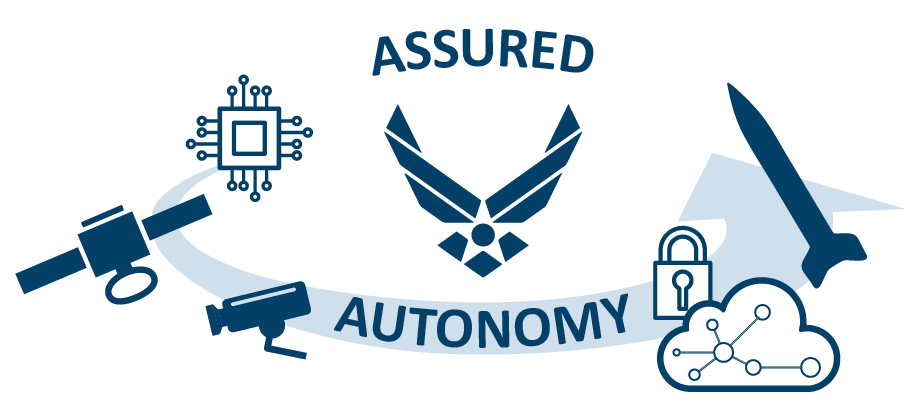
AFOSR Center of Excellence in Assured Autonomy in Contested Environments
The University of Florida (UF),
Duke University (Duke), the University of Texas Austin (UTA), and the University of California Santa Cruz (UCSC)
propose to establish an Air Force Office of Scientific Research (AFOSR) Center of Excellence (CoE) for Assured Autonomy
in Contested Environments in collaboration with the Air Force Office of Scientific Research (AFOSR) and the munitions (RW),
sensors (RY), and space vehicles (RV) directorates within the Air Force Research Laboratory (AFRL). Autonomous systems must
execute high level missions plans with verifiable assurances despite uncertain adversarial environments where the integrity
and availability of sensor information and communications are challenged. Key innovations include analysis, design and synthesis
tools that enable autonomous mission execution despite uncertainty within complex dynamics while accounting for the integrity and
privacy of information on computationally constrained resources.
To address such challenges, we develop a tightly
integrated set of fundamental theories and methods across six diverse research topics. In
Modeling and Analysis Methods for Nonsmooth Systems, we develop a new modeling framework and analysis
tools to examine dynamics that result from the integration of intermittent information with dynamic systems. Specifically, we develop
analysis tools for nonsmooth switched and hybrid systems that account for various switching triggers and uncertainty. For complex nonlinear systems,
design is inspired from analysis. Hence, we develop adaptive and optimal design tools that are integrated with high-level logic-based control synthesis
tools in Adaptation, Optimality, and Synthesis. The design and analysis tools provide a framework to incorporate different
information flows within dynamic systems. Since the union of physical dynamics and information dynamics are magnified within a multi-agent network,
Analysis, Design and Control Synthesis Within and Over Networks outcomes enable scaled autonomous operations while considering
the dynamics of the communications channel, including opportunities for adaptive network/controller interactions.
Design and Analysis with Asynchronous Information, develops tools for robustness against delays and asynchronous data exchanges
within such networks. Information disruptions and delays can result from natural effects in the environment or be a design feature
(e.g., to reduce bandwidth or power consumption); however, in contested environments, information perturbations can emanate from adversarial
actors in unique and complex ways, requiring security-aware design and analysis methods. The final two research areas develop methods that ensure
resiliency and protect privacy for communication, computation, and sensing actions. In Attack-Resilient Designs,
security techniques are developed for attack detection and resilient estimation and control for systems with constrained resources by exploiting
environmental and agent dynamics and knowledge of expected agent interaction and sensing characteristics. Adversaries can also engage in clandestine
efforts where computations and communications can be covertly monitored/intercepted. Efforts in Protecting Safety- and Mission-Critical Information
focus on obfuscating such efforts to ensure private actions by agents.
The Center of Excellence addresses many areas of direct relevance to collaborating researchers within AFRL: (space) situational awareness; sensing and
communication latency/intermittency; information provenance and integrity; private computation and communication; and collaborative effects resulting from
agent coordination/disaggregation in a network and over complex network channel dynamics.